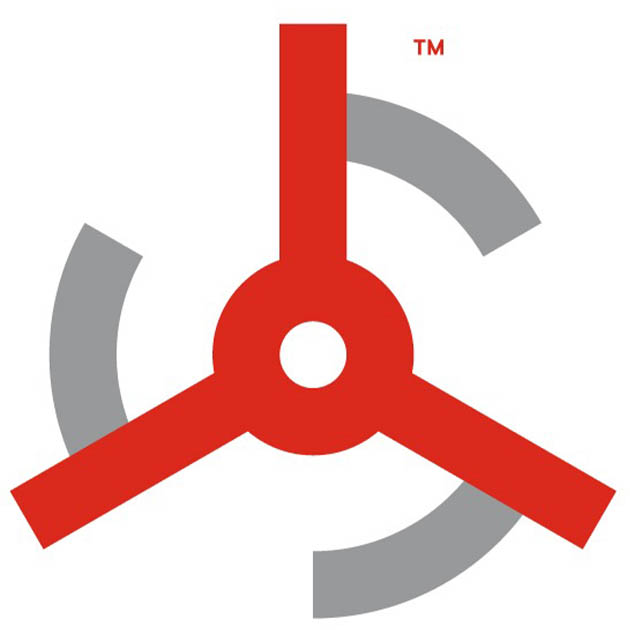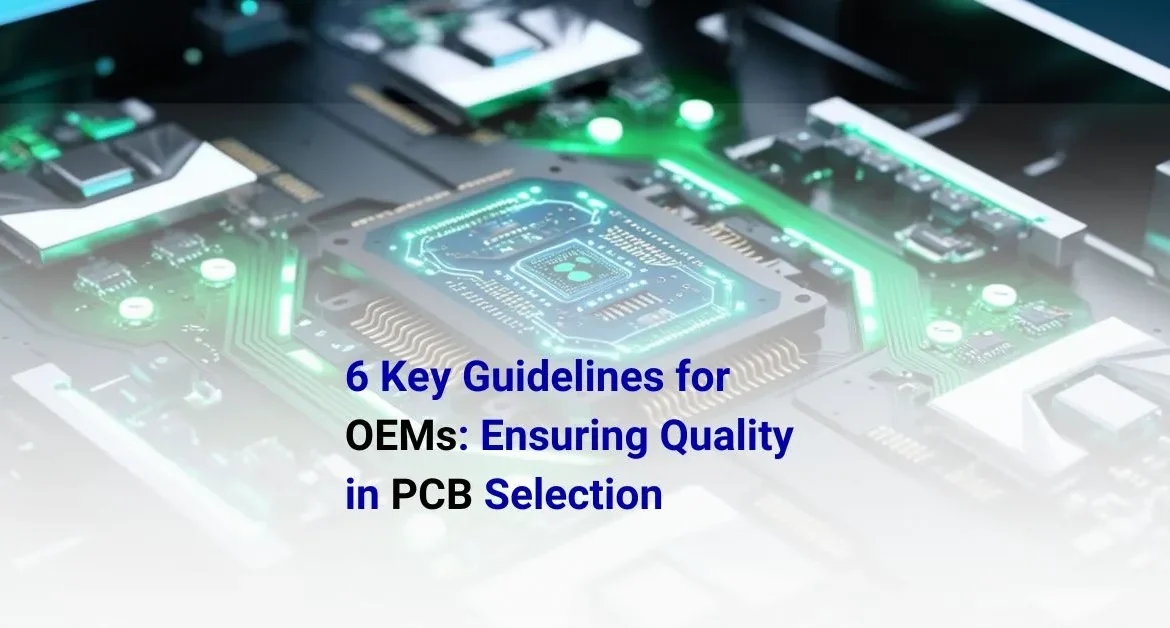For Original Equipment Manufacturers (OEMs), choosing the right Printed Circuit Board (PCB) is more than a mere decision—it’s a cornerstone of successful product development. A PCB is not just another component; it’s the backbone of electronic devices, serving as the foundation for all electrical connections. Its quality and performance can directly influence the efficiency, durability, and overall success of your product.
However, the vast number of PCB manufacturers, coupled with varying standards and quality benchmarks, can make the selection process overwhelming. OEMs need to navigate a myriad of options to find a reliable partner who can deliver consistent, high-quality PCB assemblies tailored to their specific needs.
This guide highlights six essential guidelines OEMs should follow to ensure top-notch PCB quality and reliability, while also selecting a manufacturing partner capable of meeting their unique requirements.
1. Prioritize Quality Standards and Certifications
The first step in ensuring PCB quality is evaluating a manufacturer’s adherence to established quality standards and certifications. These benchmarks serve as indicators of a manufacturer’s commitment to excellence, environmental sustainability, and adherence to industry best practices.
- Key Certifications to Look For:
- ISO 9001: Ensures a structured quality management system.
- IPC-A-610: Defines workmanship standards for electronics assembly.
- RoHS Compliance: Guarantees environmentally safe, lead-free production.
Beyond certifications, a reputable manufacturer will have stringent quality control measures in place. This includes frequent testing during production, a focus on defect prevention, and robust quality assurance protocols. These practices reduce errors, improve consistency, and ensure each PCB meets the required performance standards.
2. Assess Material and Manufacturing Processes
A PCB’s material composition is pivotal to its performance. The right substrate material must be chosen based on the application’s requirements, whether it’s for industrial automation, medical devices, or consumer electronics.
- Commonly Used Materials:
- FR4: A versatile, cost-effective choice for most applications.
- Polyimide: Offers high heat resistance, ideal for aerospace and automotive.
- High-Frequency Laminates: Designed for high-speed communication devices.
In addition, inquire about the manufacturer’s processes:
- Multilayer PCB Technology: Enables compact designs for complex devices.
- Thermal Management Solutions: Ensures efficient heat dissipation in high-power applications.
- Surface Finishes: Options like ENIG (Electroless Nickel Immersion Gold) provide enhanced corrosion resistance and reliability for solder joints.
These advanced manufacturing techniques ensure your PCBs can handle the rigors of real-world applications while maintaining performance and longevity.
3. Verify Customization Capabilities
OEMs often require unique PCB designs tailored to specific applications. A good PCB manufacturer should demonstrate expertise in customization and flexibility.
- Tailored Solutions for Different Sectors:
- Flexible PCBs: Suitable for medical equipment and wearable devices.
- HDI PCBs: Perfect for compact, high-density consumer electronics.
- Rigid-Flex PCBs: Ideal for military and aerospace applications.
The ability to accommodate intricate designs, incorporate customer feedback, and adapt to evolving needs sets a reliable PCB partner apart. Ensure that your manufacturer can handle complex prototypes and high-volume production while maintaining strict quality standards.
4. Focus on Testing and Quality Assurance
Testing is the cornerstone of reliable PCB manufacturing. Without rigorous inspection, even the most meticulously designed PCBs can fall short in performance and durability. A good manufacturer will leverage advanced testing methods to identify and rectify defects before delivery.
- Key Testing Techniques to Look For:
- Automated Optical Inspection (AOI): Ensures proper trace widths and component placements.
- X-Ray Inspection: Detects internal issues like solder voids or misalignments.
- Electrical Testing: Verifies circuit connectivity and overall functionality.
Thorough quality assurance processes not only minimize production errors but also reduce downtime and ensure consistent performance across all units.
5. Evaluate Lead Times and Supply Chain Efficiency
Timely delivery is critical for OEMs to meet production schedules and launch products successfully. Delays in PCB delivery can disrupt workflows, affect product timelines, and lead to increased costs.
Choose a PCB manufacturer that demonstrates strong supply chain management and reliable delivery schedules. Manufacturers with localized production facilities or global supplier networks often have the infrastructure to mitigate disruptions and ensure faster turnaround times.
6. Collaborate with a Trusted Partner
Beyond production capabilities, selecting a PCB manufacturer should also be about building a reliable, long-term partnership. A trusted partner goes beyond meeting technical specifications—they actively contribute to your product’s success.
- Key Traits of a Trusted Partner:
- Transparent and proactive communication.
- Design and prototyping support to refine your ideas.
- Post-production services, including testing, maintenance, and scalability.
Sanjay Technologies exemplifies these qualities, with over 30 years of experience delivering high-quality PCB assemblies for OEMs in various industries.
Why Choose Sanjay Technologies for Your PCB Needs?
Sanjay Technologies stands as a leader in the PCB manufacturing industry, with a reputation built on trust, quality, and innovation. Here’s why OEMs choose us as their PCB partner:
- Certified Excellence: Compliance with ISO, IPC, and RoHS standards ensures premium quality.
- Advanced Infrastructure: State-of-the-art facilities equipped with the latest manufacturing and inspection technologies.
- Tailored Expertise: From flexible to rigid PCBs, we cater to diverse application needs.
- End-to-End Solutions: Support throughout the product lifecycle, from initial design to delivery.
Our customer-first approach guarantees that your projects are executed with precision, efficiency, and reliability.
Conclusion
For OEMs, ensuring the quality of PCBs is a non-negotiable priority. By following these six guidelines, you can confidently evaluate manufacturers and select a partner capable of meeting your unique requirements.
At Sanjay Technologies, we bring decades of experience and a commitment to excellence, offering reliable PCB manufacturing solutions that empower OEMs to deliver groundbreaking products.
Contact Sanjay Technologies today to explore how we can help you achieve your manufacturing goals with precision and efficiency.



